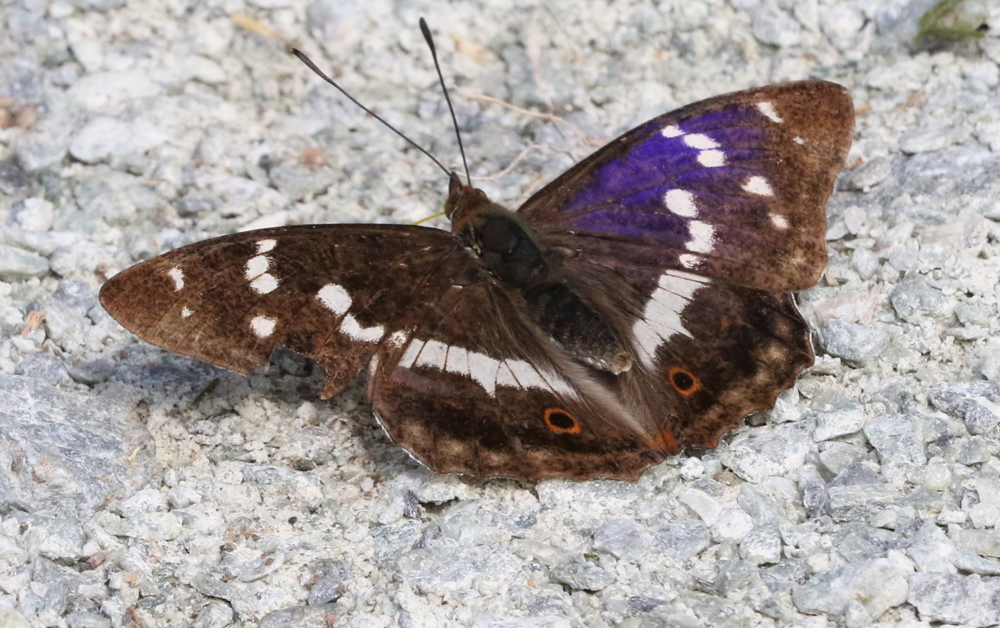Norfolk is beloved by many visitors, for its big skies, beautiful clean beaches, wealth of history and more. And on 27 July - Norfolk Day - it’s time for us all to celebrate the wild-side of our county.
.jpg.aspx?width=960&height=540&ext=.jpg)
Aviva volunteers on a work party at Foxley Wood
Few other counties have such a diversity of habitats so close to each other: Norfolk has beaches, dunes and saltmarshes sitting cheek by jowl with ancient woodland, heaths and flower rich grassland.
Crystal clear chalk streams flow in the north and west of the county and in the east are the wide slow rivers and flooded ancient peat workings of the famous Norfolk Broads.
The south of the county holds the unique habitats of the Brecks, where pingo ponds, formed during the last ice age, have continued to hold spring water since the glaciers retreated.
Because of these diverse habitats the county holds some of the UK’s rarest species such as swallowtail butterflies, fen orchids, stone curlew and our very own dragonfly, the Norfolk hawker.
The annual Norfolk Day celebration is the perfect time to recognise and celebrate just how wonderful and wildlife-rich Norfolk really is.
Norfolk Wildlife Trust has been celebrating the county’s natural heritage since its founding in 1926, when a group of like-minded individuals came together and raised money to purchase Cley Marshes on the North Norfolk coast. The notion of land purchase solely for the protection of wildlife was revolutionary at the time and in the following decades many counties formed similar Trusts. We are rightly proud that Norfolk is the oldest Wildlife Trust and at more than 35,000 members, is one of the biggest.

Purple emperor butterfly, returned to Norfolk woodlands, photo by Barry Madden
For over 90 years our members and supporters have helped us achieve so much. There have been incredible long-term projects, such as the conversion of Foxley Wood back to a nationally-important wildlife rich woodland after being used as a commercial conifer plantation for decades. This work was given the seal of approval last year by the return of purple emperor butterflies, the first sightings there for forty years.
We have continued to purchase important sites and expand and develop our existing reserves. Upton Fen, already noted for its unique flora, was extended with the purchase of adjacent grazing marshes and arable fields. The ability to control water levels, improve the dyke systems and carry out conservation grazing by cattle has meant threatened breeding birds such as redshank and lapwing are thriving. Wildfowl are also benefiting and large flocks of ducks and wild geese can be seen in winter.
Naturalists and bird-watchers have known the value of the county for a hundred years; with the Norfolk coast being a hot-spot for rare migrant birds, a pilgrimage to Cley is every young twitcher’s right-of-passage.
Norfolk Wildlife Trust manages and protects more than sixty nature reserves across Norfolk, and gives wildlife conservation advice, provides educational services - particularly for the young - and holds nature events and learning at our reserves and visitor centres.
The Trust also has more than a thousand volunteers, who are indispensable, and we would struggle to function without them. The volunteer jobs range from working in our visitor centres, practical conservation work on the reserves, helping with education and events, and supporting administration.
During this past period of lockdown many people have re-connected with nature and developed or re-ignited an appreciation of our wildlife. Some have discovered nature for the first time and now want to
help us protect it for the future.
So why not continue; for every month has its own wonders and delights. The hot days of August are great for walks on our heathlands, purple and yellow with gorse and heather. As September rolls into October, the month of ‘mists and mellow fruitfulness’ search for fungi in the woods and wonder at the marvel of bird migration at Cley Marshes.
Why not make Norfolk Day a special day by joining with us and enjoying our shared wildlife throughout the year; to steal a phrase – a love of nature is for life, not just for Norfolk Day.